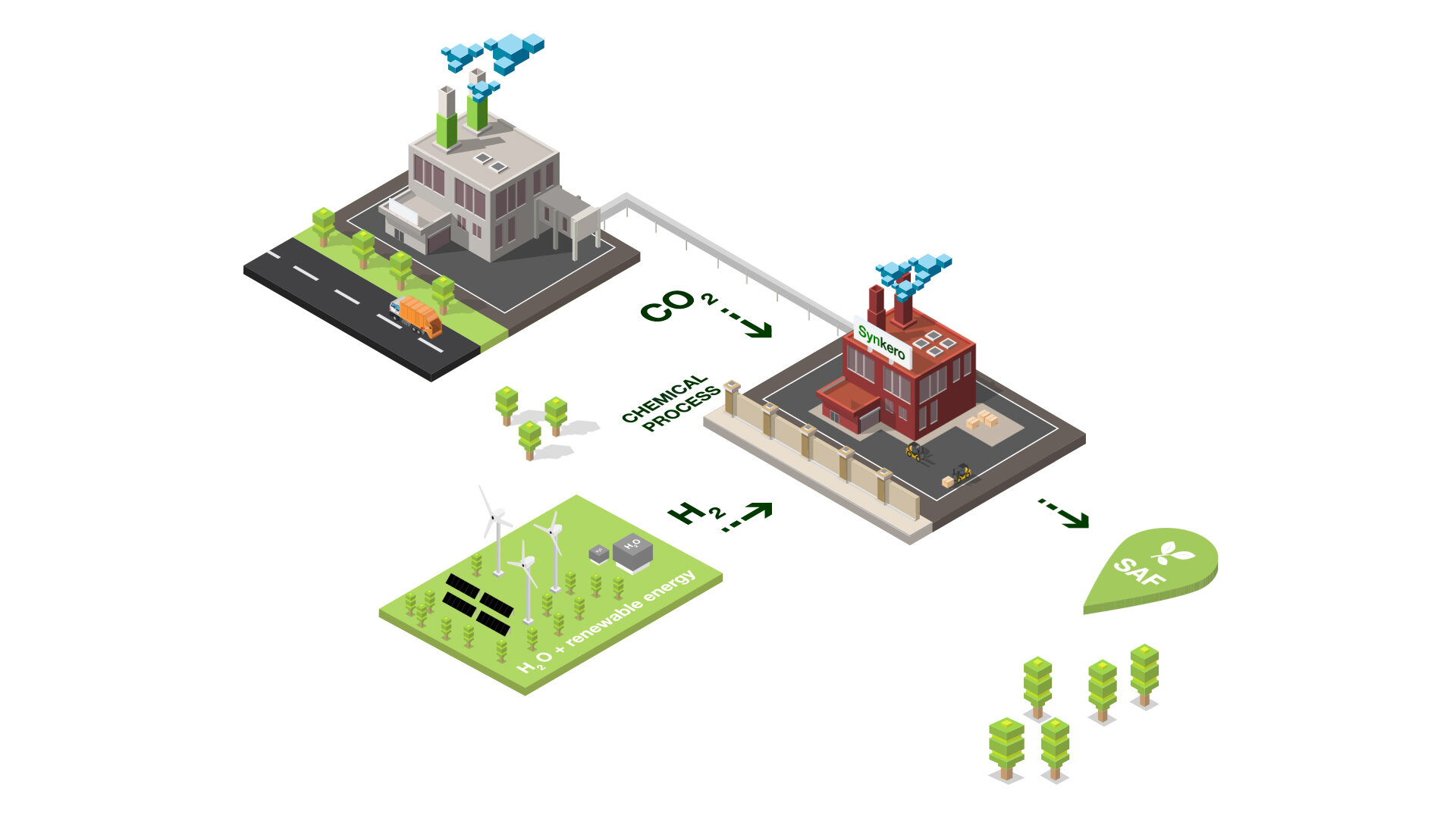Big day for synthetic aviation fuels
Picture: Synkero
I couldn’t find a better day to publish a podcast about synthetic aviation fuel.
While the latest episode of our podcast focuses on one of the most promising startups in this field, a Swiss-based Synhelion spin-off of ETH Zurich backed by Lufthansa Group, Zurich Airport and ENI, a few hundred miles to the northwest, a significant event was taking place at the other hub of synthetic fuel in Europe, the Netherlands.
The High Level Conference on Synthetic Sustainable Aviation Fuel (SAF) made honour to its name with a bunch of high ranking participants from governments and industry, among them Pieter Elbers, CEO of KLM, the Dutch Minister of Infrastructure and Water Management, Cora van Nieuwenhuizen, French minister of state for transport Jean-Baptiste Djebbari, European Commissionerfor Transport Adina Valean, the CEO of the Royal Schiphol Group (which manages Amsterdam airport) Dick Benschop, the executive director of EU Policy at European Climate Foundation, Pete Harrison, Peter Vanacker, president and CEO of Finnish oil major Neste (one of the world’s leading players in sustainable aviation fuels) and Yuri Sebregts, CTO at Shell.
The Netherlands as a synthetic aviation fuel cluster
A few interesting news have come out of this event, all of them with a Dutch angle, which kind of highlights the role that The Netherlands, with its energy, transportation & logistics and renewable energy industries can play in the emergence of a synthetic fuels industry in Europe as a fast way to lower the carbon footprint of aviation within the existing infrastructure and equipment (aircraft fleet) constraints.
The principle of synthetic fuel is that you combine water with carbon that has been captured either from a source (such as carbon-emitting industry) or from the air. By applying electricity (from renewable sources, that’s the whole point!) and through a series of chemical reactions you get syngas, which can then be refined into a synthetic liquid fuel that is blended with conventional kerosene.
As Carmen Murer, of Synhelion, highlighted in the aforementioned podcast, it sounds more simple than it really is. This is still an experimental technology and costs are higher than for conventional aviation fuel. But the expectation is that, as it has happened with other technologies, costs will come down as the industry scales up production and moves along the learning curve.
Picture: Zenid
New synthetic aviation fuels project in The Netherlands
And to scale up and move up the learning curve, you need to start somewhere.
Two new industrial-scale projects were announced during the conference:
One of them is a project called Zenid, which aims to build the first industrial demonstration plant for synthetic aviation fuels in Rotterdam. SkyNRG, Climeworks (a firm also mentioned in the podcast, which specializes in technology to capture carbon from the air) and Uniper, an energy firm.
The other project is led by Synkero, and the idea here is to build a plant to produce 50,000 tons of synthetic fuel per year at the Port of Amsterdam. This project has also SkyNRG as partner, as well as the Port of Amsterdam itself, Royal Schiphol Group (that is connected to the port directly through a pipeline) and KLM.
KLM performs first synthetic fuel flight
The Dutch flag carrier was another of the highlights of the day, with its announcement that past 22nd of January it had conducted the first commercial flight in the world using (some) synthetic sustainable fuel. The trial run was done in cooperation with Shell and Technical University Delft (a renowned research establishment that has been mentioned on this site before!).
The flight was completed by a Boeing 737-800 flying between Amsterdam Schiphol and Madrid Barajas with 500 litres of synthetic fuel, a very small share (about 5%) of the total used, but, how was it…? “a small step for man…”
KLM expects to get to 14% of synthetic kerosene by 2030. If other airlines follow suit, we are talking big numbers already. For reference, in the podcast with Synhelion, the figure was mentioned of 300 million tons of fuel being consumed pre-Covid slowdown by the airline industry every year.

